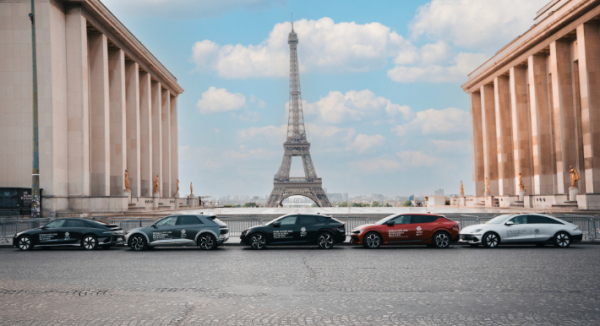[ad_1]

Hyundai Motor Group is faced with complicated situations in its business operations in France after France’s announcement of a draft decree to subsidize electric vehicles based on carbon emissions. While the draft decree is not as worrisome as the U.S. Inflation Reduction Act (IRA), it will be a totally different story if other European countries implement similar reforms.
Experts believe that Hyundai Motor Group will respond by setting up electric vehicle (EV) lines at its existing European plants or expanding EV production at those plants, rather than building new EV plants in Europe.
According to industry sources on Sept. 2, the French government released the draft decree revising the conditions for subsidizing EVs in late August. The idea is to sum up carbon emissions generated by all EV factories from production to transportation to determine whether or not to subsidize EVs from the factories. If it falls below 60 points, EVs from the factories will not be eligible for subsidies.
If implemented as drafted, Hyundai’s and Kia’s electric vehicles exported to France will be highly likely not to become eligible for subsidies in France. In 2022, Hyundai and Kia sold 16,570 electric vehicles in France, ranking fifth among EV makers. Of these, 14,800 were produced in Korea and exported to France and 68.4 percent of them enjoyed an EV subsidy program in France.
The draft decree will be fully implemented after a six-month grace period from January 2024. The Korean government collected the Korean EV industry’s opinions on the French subsidy reform plan and submitted an opinion paper to the French government on Aug. 25. The Korea International Trade Association expressed concerns that the draft decree may violate the Korea-EU Free Trade Agreement (FTA), which prohibits discriminatory treatments.
Hyundai and Kia also sent a letter of their opinions about French EV subsidies to the Korean government last month. The European market, including France, is Hyundai Motor Group’s third-largest car market after North America and the Korean market. To continue expanding in the European market, both companies operate production plants in the Czech Republic and Türkiye (Hyundai) and Slovakia (Kia).
Hyundai currently sells four EV models — the IONIQ 5, the IONIQ 6, the IONIQ Electric, and the Kona Electric — in France. Except for the Kona Electric, which is manufactured in the Czech Republic, the rest of the EV models are produced in Korea and exported to France. Kia also produces the EV6, the Niro, and the Soul in Korea and exports them to France.
With the exception of the IONIQ 5 and the EV6, which exceed the upper limit (47,000 euros) for subsidies, the Kona Electric, the Niro, and the Soul receive subsidies in France. However, if France makes a change in its EV subsidy program according to the draft decree, it will adversely affect the Niro and the Soul and finally deprive the two EV models of subsidies. This would make them more expensive and therefore less competitive in price in the French EV market.
Experts forecast that Hyundai Motor Group will convert its existing European factories into EV production bases or expand EV production at the factories rather than establish new EV factories in response to the proposed reform of French EV subsidies. Given that the decree will go into effect early next year, it is nearly impossible for the Korean automotive group to set up an additional plant in Europe.
In fact, Hyundai is expanding its production and procurement system in Europe. At the CEO Investor Day in June, Hyundai Motor President Chang Jae-hoon announced the company’s goal of selling two million electric vehicles around the world by 2030 through its mid- to long-term electrification strategy, “Hyundai Motor Way.”
In Europe, Hyundai plans to ramp up its EV production to 7 percent in 2023, 30 percent in 2026, and 54 percent in 2030. Accordingly, Hyundai will scale up production of the Kona Electric at its Czech plant to 21,000 units by the end of this year and further increase its annual production to 50,000 units in 2024. Kia is in talks over setting up an EV line at its Slovakia plant.
“Excluding Hyundai’s Russian plant currently shut down due to the Ukraine-Russia war, Hyundai will move toward electrifying 900,000 units of the total production volume at Hyundai’s plants in the Czech Republic, Türkiye, and Slovakia” said Lee Hang-koo, director of the Jeonbuk Institute of Automotive Convergence Technology. “It is difficult to build an additional plant in Europe because the decree will be implemented beginning from 2024. Thus, Hyundai will maintain its share by increasing production.”
“The French EV subsidy is different from that of the United States, so Hyundai Motor Group will have a lot to worry about,” said Kim Pil-soo, a professor at the Future Automotive Department at Daelim University College. “Hyundai Motor may be discussing ways to increase EV production at its Czech plant or add an EV facility to the plant. It will be difficult for Hyundai Motor Group to meet requirements for the construction of a new EV plant because it requires the Korean automotive group to check carbon-related rules in every process.”
[ad_2]
Source link
